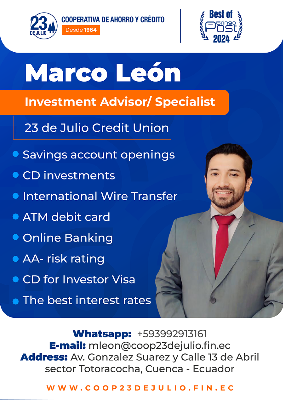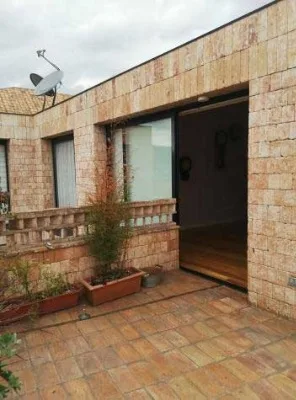Covid-19 is also a threat to our civil liberties
By Jack Kelly
The coronavirus pandemic has caused a large number of casualties—lives, economic ruin and massive unemployment. There’s another looming issue that we’re not talking about.
 Frightening disruptions to the normal course of social and business routines are allowing the government to bring down the hammer on people’s lives. Afraid for their own jobs, politicians have historically employed draconian measures on their people under the guise of doing what’s best for them.
Frightening disruptions to the normal course of social and business routines are allowing the government to bring down the hammer on people’s lives. Afraid for their own jobs, politicians have historically employed draconian measures on their people under the guise of doing what’s best for them.
The reality is that the political class is self-interested. Our founding fathers never viewed serving in Congress or the government as a full-time career. It was an honor and duty to serve for a short period of time. They’d do their part, then quickly return to their farms, businesses and occupations. Today, being a politician is considered a full-time job—one that is held for decades.
If there is a chance that their decision could harm their careers, they’ll take the self-preservation route. With regards to reopening the economy, if a politician gives clearance to reopen businesses and then people die, they will be vilified and thrown out of office. If they don’t call for a reopening, less people would die (but they may lose their jobs, savings and business), which won’t be seen as bad for their long-term career.
A disturbing trend noticed throughout the outbreak has been the aggressive and heavy-handed way our officials have acted. We’ve been sternly directed to shelter in place with the thinly veiled threat of serious repercussions if we don’t comply. There have been numerous reports of people getting arrested or fined for being outside or walking alone on a beach. A clip went viral of a Philadelphia man being dragged off of a bus for not wearing a mask. Was the violent police response appropriate?
 Whether you agree or disagree with the closing of businesses and orders to stay home, you’d have to acknowledge that it’s right out of George Orwell’s classic, 1984. Petty state bureaucrats telling us to report people who may possibly be breaching social-distancing measures wreaks of an authoritative “Big Brother” controlling our every move.
Whether you agree or disagree with the closing of businesses and orders to stay home, you’d have to acknowledge that it’s right out of George Orwell’s classic, 1984. Petty state bureaucrats telling us to report people who may possibly be breaching social-distancing measures wreaks of an authoritative “Big Brother” controlling our every move.
Once rights are stripped away, it’s hard to get them back. When was the last time you saw a toll booth removed on a highway? We’re still required to take off our shoes before boarding a plane.
It’s not like we haven’t seen this happen in the recent past. After Sept. 11, we sacrificed our liberties for safety. According to a piece in the New York Times, looking back at the terror attacks 10 years later, “The Patriot Act undeniably expanded the government’s surveillance powers and the scope of some criminal laws.”
Out of fear of future terror attacks, we accepted abridged rights, including being eavesdropped on our phone calls by government agencies, the telecommunication companies sharing our information with law enforcement, our bank and investment accounts being scrutinized and being thoroughly searched like criminals before boarding a plane. Many people aren’t aware that we used to walk right up to the plane without two-hour waits, metal detectors and the TSA patting us down.
The government, along with the media allies, have suppressed dissenting opinions. On Twitter, accounts that offer different takes—outside of the norm—are suppressed. Zero Hedge, an irreverent and financially oriented blog, suggested that COVID-19 might have been started by a bioweapons lab in Wuhan, China, which did not conform to our accepted narrative. Rather than allow a different viewpoint, Zero Hedge was permanently banned from Twitter.
We’ve closed our borders, stopped flights in and out of our country and banned certain people from entering America. Texas and Ohio have banned almost all abortions. How long will these measures be kept in place?
When you watch the daily press briefings of President Donald Trump, you will see a couple dozen reporters sitting a few seats apart from each other. Why is that permissible, yet churches are forced to close during one of the most important Christian holidays?
America is the mecca for people from around the world to emigrate to so that they could freely practice their religions without persecution. In a move that seems more appropriate for a brutal dictatorship, the government and states warned that churches should not keep their services, as too many people will be gathered together.
 The Justice Department asked Congress for the chief judges to detain people indefinitely without trial during emergencies. According to Politico, this is only part of a larger strategy to push for new powers in response to the COVID-19 pandemic.
The Justice Department asked Congress for the chief judges to detain people indefinitely without trial during emergencies. According to Politico, this is only part of a larger strategy to push for new powers in response to the COVID-19 pandemic.
Dr. Anthony Fauci, director of the National Institute of Allergy and Infectious Diseases, said that the federal government is thinking of issuing certificates of immunity from the coronavirus. This may be enacted to better identify people who have been infected with the virus. When questioned, Fauci replied, “You know, that’s possible.”
Two tech giants that already hold most of our private data, Google and Apple, jointly announced an effort to use Bluetooth technology to alert people if they’ve been exposed to the coronavirus. Those who have contracted the virus or have signs of it will be outed. The American Civil Liberties Union brought up serious concerns about tracking users with phone data. The ACLU has called for a need to limit its scope.
How long will it be before we have to have our temperatures taken before we enter an office building? Prior to Sept. 11, you could have walked into any New York City office tower, ask for the person you wanted to meet with, go right to the elevator banks and up to the person’s office. Now, you have to wait in a line, show your driver’s license or passport, get your picture taken and be scrutinized by surly security guards.
Dr. Michael Ryan, executive director of the World Health Organization Emergencies Programme, said surveillance is part of what’s required for life to return to normal in a world without a vaccine. He also took it several steps further by saying, “Now, we need to go and look in families to find those people who may be sick and remove them and isolate them in a safe and dignified manner. Just so you know, we’re coming to your house, seizing your children and ‘isolating’ them in a safe and dignified manner, whatever that means.”
This has a direct bearing on your job and career. Think of how many people may be denied jobs because the Apple and Google tracker shows that you had, have or were in contact with someone who was infected with COVID-19. The human resources department will say that the company is truly sorry that it couldn’t hire you, as it has a responsibility to look after the health and well-being of its employees.
After this crisis ebbs, if you have to go to an airport to fly out and meet a client across the country, enter a building to attend an important meeting, go to a networking event or take out a customer for lunch, will you be required to show an ID card proving that you are healthy enough to enter the premises?
Consider what may happen to those with pre-existing health issues that render them susceptible to COVID-19 and future virus outbreaks. Will they be discriminated against? It will be difficult and expensive for companies to provide safe conditions for this group of people. It would be more convenient to pass on hiring or forcing them to be secluded by solely working from home.
It’s likely that new compliance and regulatory rules will be put into place. Laws will demand companies have a set distance between desks and the amount of people permitted to work in an office at the same time. The number of employees in an elevator or attending a meeting may be strictly monitored. Business matters that require air travel, stays at hotels and dining out at restaurants could be denied or closely regulated in fear of catching or spreading a virus. Companies may be forced to subject their employees to mandatory health checks and wearing masks.
The moves made by politicians and bureaucrats during the pandemic will have severe long-term repercussions for our careers and lives that could prove to be worse than the outbreak itself.
___________________
Credit: Forbes


















